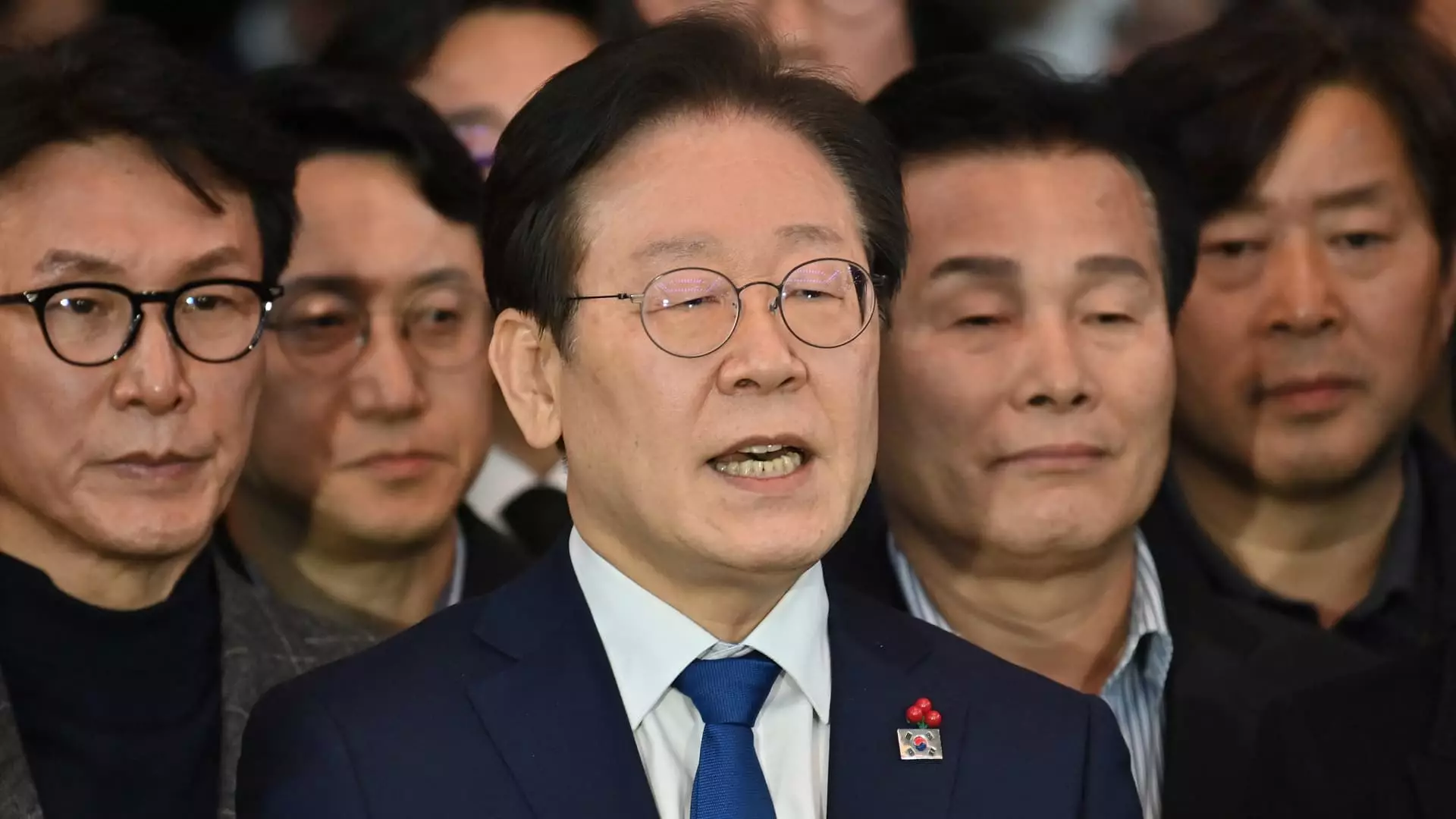In the political landscape of South Korea, the upcoming presidential election reveals more than just candidate preferences; it exhibits the underlying tensions in international trade and diplomatic relations. Lee Jae-myung, the frontrunner from the Democratic Party of Korea, is visibly focused on redefining the terms of engagement with the United States concerning President Donald Trump’s controversial tariffs. His bold declaration that the timeline for negotiations needs reconsideration highlights a critical point: successful diplomacy should serve mutual interests rather than be an exercise in unilateral advantage. The implications of these negotiations are profound, not just for South Korea’s economy but for regional stability.
The backdrop of this situation is the upheaval following the impeachment of Yoon Suk Yeol, whose decision to briefly declare martial law in December led to political chaos. Currently, South Korea must navigate the uncharted waters of leadership amid economic turmoil and strained international relationships. Lee’s insistence on revising the predetermined deadlines set by the U.S. illustrates a growing recognition that the traditional dynamics of trade negotiations are inadequate. The call for a collective re-evaluation encapsulates the essence of diplomacy as a two-way street.
Economic Realities and Voter Sentiments
The urgency of Lee’s message comes at a time when the South Korean economy faces inevitable challenges, including the possibility of recession. His proposal for a supplementary budget is a pragmatic approach to stimulate growth and demonstrate accountability to the electorate. This is an attempt to steer public sentiment back toward stability. Many citizens are concerned about their livelihoods, a sentiment that likely resonates deeply amidst global economic fluctuations and local uncertainties.
By emphasizing immediate and actionable economic measures, Lee is positioning himself not only as a candidate concerned for present-day issues but also as a leader ready to take decisive action. This approach contrasts markedly with Yoon’s previous administration, which adopted a more aggressive stance toward North Korea and, ultimately, led to heightened tensions that impacted both foreign investment and public confidence. In this era of insecurity, voters are naturally looking for leadership grounded in pragmatism rather than posturing.
Diplomacy and Defense: A Balanced Approach
While Lee advocates for improved diplomatic relations, he simultaneously stresses the importance of maintaining robust defense capabilities. The balance he seeks between military readiness and diplomatic dialogue reflects a nuanced understanding of the regional security landscape. He sees the South Korea-U.S. alliance not just as a military partnership but as a critical framework for achieving lasting peace on the Korean Peninsula, which is vital for economic stability. This bipartite strategy illustrates a fresh perspective: one that cherishes strength without sacrificing the potential for constructive dialogue.
Lee’s critique of Yoon’s hardline policy on North Korea serves as a reminder of the drawbacks of past approaches—namely, that aggression can lead to alienation rather than resolution. By promoting a philosophy of coexistence and communication, he offers a path forward that recognizes the complexities inherent in inter-Korean relations and the broader geopolitical scenario.
A Changing Poll Landscape
As polls show Jae-myung leading, albeit with a narrowing margin against his conservative opponent Kim Moon-soo, the political narrative is dynamic. Lee’s confidence in his platform’s acceptance among voters, particularly in light of previous scandals, suggests a robust belief in political accountability. The calls for ethical governance resonate with an electorate tired of instability and uncertainty. This sentiment is likely to be a decisive factor in the upcoming election, influencing the aspirations and fears of the constituency.
However, the waning support in opinion polls points toward a pivotal challenge—Lee must clearly articulate how his ambitious goals will translate into practical outcomes. This is no small feat, particularly in a nation grappling with past political turbulence and a precarious economic landscape. Therefore, the stakes are incredibly high not just for Lee but for the future direction of South Korean society and its standing on the world stage.
As the election approaches, the intersection of trade, diplomacy, and the economy reveals the multifaceted nature of contemporary governance. Lee Jae-myung’s candidacy offers a compelling vision, one that prioritizes mutual respect and fair negotiations, suggesting that the future may hold brighter prospects for South Korea in a rapidly changing world.

